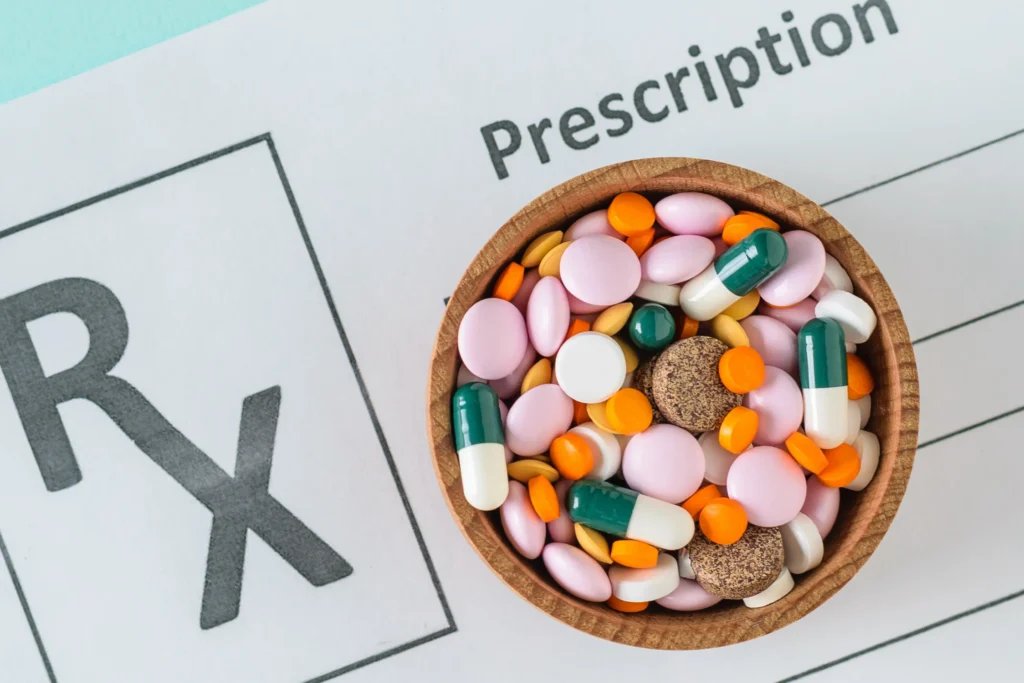Prescription medication addiction has become a major concern in the United States, causing many states to create monitoring systems to combat overuse.
One such project is New Jersey’s Prescription Medication Monitoring Program (NJPMP), which plays a crucial role in combating opioid misuse and prescription drug fraud.
This article provides a full overview of this program, including its aim, essential features, benefits, and role in promoting safe and responsible pharmaceutical use.
Purpose of the NJPMP
The major goal of the NJPMP is to reduce prescription drug misuse by improving openness and accountability in the prescribing process.

The doctor’s prescription explained.
It seeks to avoid overprescribing, detect misuse, improve patient safety, and assist law enforcement. This program helps avoid overprescription of prohibited medications like opioids, which have been related to addiction and overdose, by providing healthcare practitioners with access to a patient’s prescription history.
The technology also enables prescribers and pharmacists to identify patterns of usage like doctor shopping, early refill requests, and patients who visit numerous pharmacies. By providing a comprehensive perspective of a patient’s prescription history, it helps prescribers in making informed decisions, lowering the risk of adverse drug interactions, overdose, or dependence. This technology also supports law enforcement investigations by spotting trends in medication diversion and usage, allowing authorities to trace down unlawful prescription drug activities.
How the Program Works
The NJPMP collects data on all CDS and HGH prescriptions filled in New Jersey. Pharmacies and dispensing practitioners must submit this information on a daily basis. The program collects information such as the patient’s identity, the prescribing doctor, the prescription given, the pharmacy where it was administered, and the amount of drug.
This database allows authorized healthcare practitioners to see a patient’s prescription history. This information enables prescribers to identify whether a patient is at risk of addiction or misuse and modify treatment regimens accordingly. Pharmacists can also evaluate this data before prescribing medications to ensure that the prescription is both suitable and safe.
Who Can Access the NJPMP?
Access to the NJPMP is limited to specific individuals and businesses, protecting patient privacy while encouraging safe prescribing practices. Pharmacists, prescribers, delegates, and law enforcement authorities are all authorized to use the NJPMP. Doctors, dentists, nurse practitioners, and other healthcare providers with prescribing power can use the program to evaluate their patient’s prescription history before issuing CDS or HGH.
Pharmacists can use the NJPMP to ensure that a prescription is suitable and to identify potential red flags, such as overlapping prescriptions or unusual dosage quantities. In rare situations, prescribers and pharmacists can grant NJPMP access to trained personnel under their supervision, such as office workers or pharmacy technicians. In some cases, law enforcement personnel investigating drug-related crimes may have access to NJPMP data with proper legal authority.
Benefits of the NJPMP
It offers several benefits to patients, healthcare professionals, and the public’s health. These include effective patient care, enhanced communication, a decrease in the misuse of prescription drugs, and data-driven public health initiatives. The program promotes safe and accurate pharmaceutical dispensing by giving prescribers a thorough understanding of a patient’s prescription history. Prescription medication misuse and doctor shopping have decreased because of its ability to spot dubious prescribing and dispensing practices. Additionally, it encourages better communication between pharmacists and prescribers, making sure that all parties engaged in a patient’s care are informed of their medication history. For public health policies and initiatives aimed at lowering prescription drug misuse and enhancing patient outcomes, the NJPMP produces valuable data.
Challenges and Future Developments
Despite its notable progress in decreasing prescription drug abuse, the NJPMP also has its drawbacks. Among the primary problems is that the system’s efficacy is limited because not all prescribers use it regularly. In order to track prescriptions across state lines, there is a need for more integration between state monitoring programs because patients may look for medications in other states. Enhancing the program’s impact in the future will require initiatives to boost provider education, enhance interstate data exchange, and promote the use of the NJPMP.
The NJPMP program in New Jersey is an invaluable resource in the fight against prescription drug misuse and addiction. It helps to guarantee safe prescribing practices, preventing drug diversion, and protecting patient safety by giving pharmacists, prescribers, and law enforcement access to real-time prescription data. Even if there are still obstacles to overcome, the program’s ongoing growth and improvement will be essential in combating the opioid problem and encouraging the state’s residents to take medications in the right way.




